As director of the International Monetary Fund’s Western Hemisphere Department, Alejandro Werner negotiated the organisation’s biggest loan ever with the governments of Cristina Fernández de Kirchner, Mauricio Macri and Alberto Fernández.
Born in Argentina, Werner was raised and trained as an economist in Mexico, where he rose to be deputy economy minister. No longer employed by the IMF, today he is the director of the Institute of the Americas at prestigious Georgetown University in Washington DC.
He has just published La Argentina en el Fondo, where he analyses with knowledge of the case and hitherto unknown details the country’s conflict-ridden relationship with the IMF.
You explain in your book that few countries have had such an emotional relationship with the International Monetary Fund (IMF) as Argentina. You narrate that even Che Guevara, when Cuba was an IMF member, represented the Caribbean island on the IMF board of directors without any inconveniences. Even Fidel Castro repaid the loans contracted by the government whom he had just overthrown. To what do you attribute that especially emotional aspect of the IMF for Argentines?
That is clearly another derivative of Argentina’s structural macroeconomic problems. From the way the Argentine economy has undergone the last half-century in almost continual crisis with debt rescheduling and periods of inflation, the social consensus sustained since the return of democracy – basically to live democratically with the military restricted to their sphere of influence but no longer participating in the political life of Argentine society – is a consensus which has not succeeded in establishing the desirable size of state, the scale or ambition of the desirable policies of redistribution and the ambition of investment in education and of social reinforcement via education, health, etc., which basically leads to a relatively free-spending state being desired compared to other Latin American states without the tax capacity to finance that state.
In that context, Argentina recurrently falls into balance of payments crises, whether on the side of the balance of trade or capital. And basically the IMF is the instrument formed by the international community – the 190 IMF partner countries – to aid those nations entering into balance of payments problems. In some situations, the traditional financing to aid those economies which spend more than they produce, whether in investment or in consumption, can be financed on the markets, etc. When the markets disappear, those economies recur to that international credit organisation to support that economy in its period of re-establishing balance while reopening the international financial markets. Argentina has been unable to resolve that equation of maintaining a constant access to the markets because they basically abused the opening to the markets when they had it and then when they didn’t, they also abused Central Bank financing and financing via inflation. They thus recurrently fall into these crises, turning to the IMF so that the latter ends up having a presence in Argentina in the worst moments of the country’s economic history. And in that context, it ends up being in part the victim at times and partner at others while jointly responsible for the decisions keeping Argentina imbalanced.
In the book we review – very quickly and lightly rather than historically or in depth – the major economic decisions of the last four decades in Argentina, like the design of the Austral Plan, of convertibility and the decision to advance in a gradualist strategy to correct those imbalances in the Mauricio Macri administration, and the decision, or perhaps the lack of one, by this government regarding an economic programme where we can see that the IMF did not take an active part in any of these decisions. Once these decisions were taken and the strategy advanced with some success but eventually running into important obstacles, the IMF was invited to help out and decided to participate, then probably being held responsible for certain decisions, some of which might have been right, others wrong and others yet which, at the close of episodes ending in important crises, might have been questionable. Argentina might well have embarked on another path if the decisions had been different.
But what we are trying to say is that at the end of the day, it is difficult to think that the IMF recommendations were at the heart of the problem. We begin the book by running through Latin America, where we say that many countries have had many programmes with the IMF (Colombia 22 and Peru also a good number) but in the last 20 or 30 years, they have not returned to the IMF nor fallen into critical situations. Some of these countries have run up contingent credit lines but without any conditions in particular, etc ...
And as for that story of Cuba with Che Guevara and Fidel Castro, it’s interesting, above all in the light of the criticism sometimes made against the IMF in Argentina as to the legitimacy of a loan, whether it is legal or illegal. Che Guevara was Fidel Castro’s Central Bank governor in Cuba.
Since the IMF was created, as you relate in your book, over half its funds were destined to loans to Latin American countries when the subcontinent represents only eight percent of the world’s population and economy. Might it be inferred that, also during the Cold War, the IMF was an instrument of its main member, the United States, to counter the influence of authoritarian powers in its own continent, in what is vulgarly known as its “backyard”?
Obviously. The IMF was constituted and conceived, along with the World Bank, to aid the reconstruction of Europe, as well as the Marshall Plan, which was much more ambitious, to support the investment and reconstruction needs in those countries. The IMF stemmed from that concept of [John Maynard] Keynes that the reparations demanded of Germany after World War I, along with the need to return to a regime of fixed exchange rates, triggered recession in Europe and the world, which was one of the reasons for World War II. The idea being to create an institution to permit fixed exchange rates between the main economies of the world but above all for those moments when those fixed exchange rates run into external shocks, thinking not so much of Europe but, to simplify the example, oil-exporting countries. If oil prices fall, your exchange rate is stuck at the wrong level because you are not so competitive and you do not have so much wealth so you would want to devalue. And the IMF design would, very simply, try to set this devaluation at appropriate levels in a stable context with Fund financing to avoid what are called competitive “beggar thy neighbour” devaluations.
Following the 1930 crisis, one country would devalue and another would devalue even more.
So that was the objective and obviously the IMF, like central banks, has in its founding statutes sufficient flexibility to go shifting its support instruments to face different types of crises. So it was constituted for that but when Latin America wandered into its debt crises, etc., the IMF was clearly a very important instrument for that and, as you mention, an instrument of the Western world to support the economies who want to form part of that orbit and participate in its commercial and financial operations. If at that time you wanted to participate more in the Soviet orbit, you would enter there. And today, to round out the response, we are witnessing certain tectonic movements, which are seeing China emerge as the second economic and geopolitical power and start to establish its own international financial structures, such as the BRICS Bank and all those currency swaps with central banks. The BRICS Bank and the Chinese development banks are trying to emulate the World Bank in their external operations such as financing dams, social policies, etc. while somehow trying to cover what was traditionally done by the IMF with their network of currency swaps.
You are Argentine by birth but Mexican by adoption and even the equivalent of an Argentine economy minister as Treasury secretary in Mexico, as well as the economic studies director of the Bank of Mexico. Taking advantage of your being an expert concerning Mexico, I would ask you: Would it have been possible for Mexico, due to its proximity to the United States, to have a president like [Salvador] Allende in Chile, or guerrillas like the Montoneros in Argentina? If the answer is no, it would seem logical that the biggest loan in IMF history, the equivalent of US$88 billion now, was for Mexico, due to the importance of its geopolitical stability for the United States. Should we be recognising a political logic between what is important for the United States and its subsequent transfer to the IMF?
Clearly not. In the book – and hence the idea of writing it together with Martín Kanenguiser – we try to achieve the best combination between technical aspects, inside knowledge and historic factors but also in a more journalistic tone to make it a book of interest for the general public and not just a reference for historians or economists interested in international finance. And we try to approach your question as to how to combine the technical design and perhaps the impartiality which IMF officials would seek to have with the political interests of its members which its shareholders do have, designing the technically correct adjustment programme but within the political interests of its shareholders.
Today in Mexico we have a leftist government with a tense relationship with the United States, which is not the same thing as the 1970s with Allende and the military coups and US influence in those processes. But the relationship between Mexico and the United States has importance today due to the immigration issue, which is probably the number one US interest with respect to Latin America. And obviously Mexico makes important concessions to cooperate with the United States regarding immigrant flow, including that from Central America. And when Mexico enters into problems, concern over an increased immigrant flow to the United States probably becomes an important factor in US financial decisions to support Mexico.
Now since Argentina is a G20 economy, it is an important economy. There has been a lot of talk as to the friendship between ex-president Macri and [Donald] Trump – and they probably were friends and mutual acquaintances etc. – but any time a Latin American economy, or the third economy of Latin America, enters into problems, with China on the prowl for such moments to increase its interference in different countries, it is clearly in the interest of the United States to fix these problems. So there’s always going to be a bias and that is why at the end of the day, the Trump presidency backed this programme. And the [Joe] Biden administration ended up supporting the programme made with President [Alberto] Fernández. And I don’t believe that is because we now have this government in Argentina.
Would Trump also have supported Alberto Fernández?
Trump would also have supported him and Biden Macri. There would have been certain shades of difference but it is the pragmatism in politics which leads them to act that way.
Reading your book it would seem, and correct me if I am misinterpreting, that the IMF was harsher with Mauricio Macri than with the Alberto Fernández government, which imposed more conditions. How do you see it and how would you compare the treatment of the two governments?
Your interpretation is correct. Obviously one would have liked to have seen some real negotiations, not to defeat Argentina but so that the IMF could discuss the design of public policies as often a counterbalance to governments which want to postpone certain measures, even when they believe them to be correct, because they are politically inappropriate. Our work with the Mauricio Macri administration sought that balance.
Now the work done with President Alberto Fernández was always very clear in the dialogues which I heard of and had with him when I was still at the Fund at the start of negotiating the programme, when President Fernández always explained: “I inherited this loan for which I was not responsible and therefore the next loan is going to have to accommodate itself to my design of economic programme.” He almost said: “I’m not going to negotiate with you, you are going to have to make the accommodation with a new programme according to parameters which I’m going to define.” The IMF perhaps started to say no but I never heard it with the force we had when negotiating with ex-president Macri. Yet it is also true that it is one thing to renew a credit and another to grant it.
The IMF somehow implicitly accepted that reality because if not, Alberto Fernández would have fallen into default without the money being repaid to us because he had no way of doing so. The IMF therefore accepted dynamics whereby its ambition to influence the economic programme of President Fernández was much less than the ambition it might have had negotiating a new programme when basically it has the power.
The negotiating power is very different from somebody granting you a credit when you tell them: “I cannot pay you so one of two things, either we reschedule or you force me into default.” And in that sense President Fernández had much greater negotiating power but I think he ended up deciding on an economic programme which he believed would benefit him politically but at the end of the day it hurt Argentina. And now we are reaching the end of his government in a tremendously delicate situation which probably would have been different if he had listened to the recommendations of not only the IMF but also many Argentine economists who probably would have suggested more ambition when it came to fiscal consolidation, opening up the economy, etc.
But from the viewpoint of new funds, zero for the current government. You might have been harsher in the conditions imposed on the Macri government but far more benign with the sums of money lent.
Exactly. But that was also a choice of the Alberto Fernández government and we say so in our book. If the Alberto Fernández presidency had negotiated the renewal of the loan with the IMF immediately after restructuring private-sector debt in 2020 during the pandemic and that’s basically the sequence followed by most countries, restructuring with private credits and then restructuring or adopting a programme with the IMF – here it was postponed. If they had moved four months after [settling with private creditors], the IMF would probably have fallen into line but that is speculation...
Granting more money?
Between US$5 billion and US$15 billion more. Firstly, because during the pandemic they were granting all countries worldwide up to 100 percent of their quotas, which in Argentina’s case could be US$5 billion. And secondly, given that Argentina needed more space in the context of a new programme, I believe that it might have reached US$12 billion, perhaps similar to what they have been currently requesting. So it was a political decision of President Fernández.
Who did not want to go any further into debt.
Not to go any further into debt but to await a programme until approaching the second half of his term.
Let us go to the origins of the loan. What are the criteria which must be heeded for a loan of such exceptional size as that of 2018? And returning to a previous question, was there also a political component when granting a credit of that size?
The conditions with which a country must comply, apart from all the normal ones, pass through demonstrating that access to capital markets is maintained, which in terms of financing, with the government obtaining so much, above all in the local market, that it continued to renew its debt in part and thus had access to that market. Secondly, the criterion of debt sustainability. At the time, as determined that Wednesday when this new programme was approved, it was thought, and the toolbox of the Fund so indicated, that the debt was sustainable, not with any high degree of probability but within the parameters. That is a probabilistic criterion and it was considered sustainable, not with a high degree of probability but there was compliance with that criterion. It was also mentioned ...
The IMF jargon is interesting, “sustainable but not with a high degree of probability.” It seemed so but not.
It was said that there were risks and scenarios in which it would not be sustainable.
But probability and possibility are two different things.
Thirdly, it’s about evaluating the political support that the programme and its public policies might have, along with the support for the sitting government which is proposing the programme. In that sense our teams go talking to the trade unions, Congress, etc. And to the degree that Congress also approves the budgets, it may be said whether that support exists or not. And when we met with Fernández, who was then a candidate, he was very clear about his commitment to complying with the country’s financial obligations to the Fund.
Furthermore, he [Alberto Fernández] was very clear in expressing his commitment to fiscal consolidation. He reminded us many times how he had participated with [late former] president Néstor Kirchner in securing the only primary surpluses in Argentina, etc. And where the discussion got a bit more tense and where there were more differences intellectually was in the part of monetary policy where he probably believes that firstly, the independence of the Central Bank is not a good thing and that the role of the Central Bank goes beyond just controlling aggregate demand. It plays a minor role in industrial policy and probably capital controls and a certain regime of multiple exchange rates with the Central Bank deciding who has access to foreign currency and who not is something which could be desirable, given the characteristics of the Argentine economy. So that is the sphere where there are the most doubts but it was considered that the political support existed.
Did President Fernández also transmit that his vice-president was in agreement and not just himself?
No, he didn’t. But he was the candidate who was going to be president. In those meetings [former economy minister Martín] Guzmán did not yet exist.
Did Guzmán afterwards in your conversations confirm to you that his plan of paying off the IMF was also supported by the vice-president?
I never had any dialogue with the minister Guzmán. When the loan first started to be negotiated with the Alberto Fernández government, there was a new team, partly perhaps due to the decision of the IMF managing director and perhaps partly at the request of the Argentine government or implicitly due to its attitude.
I dedicated myself to other things in the Department. I had my opinion about the Argentine economy, which I communicated to the managing director and when the members of the team had any doubts or needed input from the past, we had dialogue about Argentine issues, that yes. But what is also true is that I was never given the impression that there was any intention of never paying but neither of going for a very ambitious economic programme. At the end of the day I was given the impression that minister Guzmán accepted economic policy being relegated by political objectives.
In your book you say that during a very long period, [IMF Managing Director Kristalina] Georgieva and Julie Kozack – who replaced you at the Department in 2021 and today is IMF spokesperson – understood Argentina via the microscope of Guzmán and [Argentine representative at the IMF Sergio] Chodos. Today the Argentine government is saying that the IMF requested a double devaluation and that [Economy Minister Sergio] Massa managed to halve it just as the IMF had asked for the gas pipeline to be postponed and Massa completed it. How has the relationship between the IMF and Argentina been modified by the change in Economy ministers between Guzmán and Massa?
From what I have heard, seen and read, Massa’s vision overlaps more with what IMF officials think, even with the differences, but I believe that Massa is an official who is not going to discuss with the IMF whether politics…
Or ideological economic questions?
Or technical but from different visions, whether inflation is a multicausal phenomenon or not when he knows that the day he signs a programme, whatever the IMF might say, an increase in interest rates will be requested. So to waste time with the IMF saying that inflation is a multicausal phenomenon if when we sign, I am going to be asked to raise interest rates or restrict the money supply, that is wasting time on an ideological discussion. And in that sense minister Massa is more pragmatic, he knows where the IMF stands and has no analytical pretensions in the economic sphere.
Was Guzmán too fond of economics and engrossed in academic discussions?
I don’t know him but I think it reflects that kind of thing. And then putting into the president’s head, I don’t know who did, that inflation [is multicausal], in an economy which has reached 120 percent and which will probably end up who knows where this year, that’s a self-fulfilling prophecy. Whoever explained that to the president of the Argentine Republic is irresponsible because clearly in a country with triple-digit inflation there are fundamental problems which need attention and the president should not be told that this is a psychological issue and if anybody tells him that, they should warn him not to say so in public because he is only going to make a fool of himself.
You criticise the idea of inflation being multicausal but if eliminating the fiscal deficit and halting the money supply were sufficient to eliminate inflation in a country with Argentina’s history, why didn’t the combo of monetary policy and fiscal contraction via the agreement with the IMF succeed with inflation increasing from 25 to 50 percent?
Because it takes time to make things work.
Remember that phrase of Keynes that in the long term we are all dead.
No, because Mexico isn’t dead, Chile isn’t dead, Colombia isn’t dead.
Would you be willing, if a government so asked, to contribute to Argentine public life at some time?
I’d like to help but I wouldn’t be working in the Argentine government because I have no contacts nor detailed knowledge. I know what is needed to be a good public official. I don’t know if I was in Mexico but I think I know what is needed : a combination of technological knowledge, political and negotiating skills and a network of contacts and relations which you go building up during your life, which helps you in a context of ambiguous regulation by a judicial system with its flaws and to operate in those political and social surroundings, something I don’t have here.
I clearly do not have an entire part of the conditions needed to be a good official.




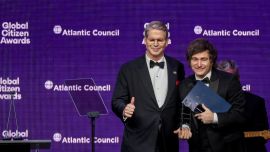


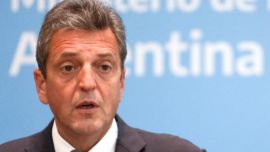



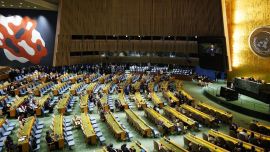
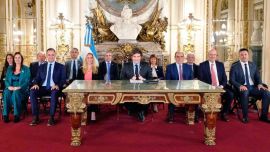
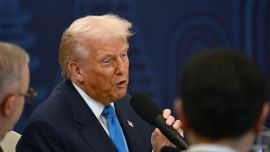

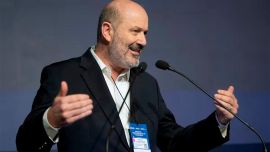

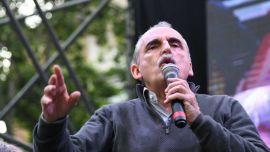
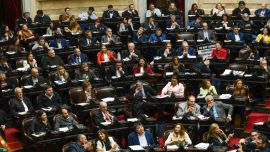
Comments